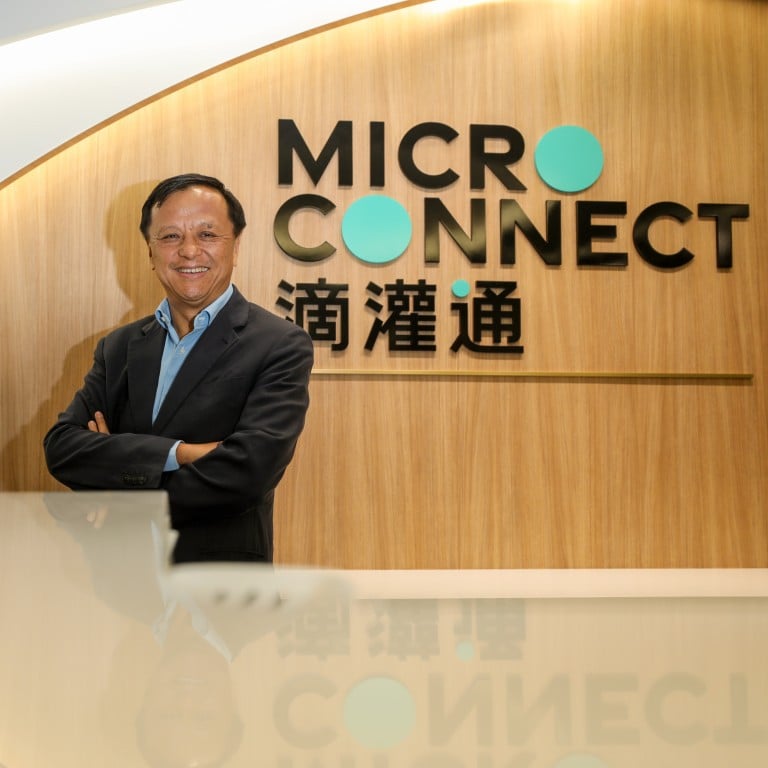
Charles Li’s Micro Connect pushes unique financing model in Southeast Asia
- Charles Li, former head of the Hong Kong exchange, said his new firm could expand its financing model to Southeast Asia as early as the fourth quarter
- The company has focused its financing in exchange for a cut of daily income in mainland China, where mobile payments make it easy to track revenue
Charles Li Xiaojia, former head of Hong Kong Exchanges and Clearing, pitched his new venture that finances small businesses and takes a cut of daily revenue at the Money20/20 Asia conference in Bangkok, as the company pushes the model outside China.
Micro Connect could be ready to launch the model in Southeast Asia as early as the fourth quarter, Li said on the sidelines of the three-day conference on Wednesday.
“I would say at the earliest, our serious push to Southeast Asia is going to be in the fourth quarter,” Li said. “We don’t need regulators. If you are a fund manager or if you’re just an investor here, and you know how to invest in Thai chains, you go ahead and invest in, let’s say 100 shops of five chains and collect enough local investors to put in there.”
Li was the opening keynote speaker on day two of the conference, where he made the case for his vision for alternative financing that he once believed could only work in a highly digitised market like mainland China. Wide adoption of mobile payments in China means that a final tally of the day’s revenue can quickly be seen by the close of business and then investors can take their cut.
The company is now trying to assess what this model might look like outside China. The key so far is working with shopping centre operators and landlords to confirm revenue and ensure payment.
“That’s becoming a lot more effective, which means we’re able to implement this in Southeast Asia,” Li said. “Any economy with a large population, underdeveloped financial services, big bricks-and-mortar consumer economy.”
Li touts Micro Connect as a boon to small businesses that would not be able to get loans from traditional financial institutions. But the company is focused on small chain stores that are looking to expand with proven business models, Li said, making it a safer bet for investors.
In China, investors make their money back within 20 months on average, according to Li, while a typical contract lasts 32 months.
The executive acknowledged that conditions in other markets could change the calculus.
“It could be different, so therefore those local investors will need to find a way to negotiate what makes the most sense,” Li said.
The premise of Micro Connect hinges around the idea that many small businesses make a return even if they do not last longer than a few years.
“Of the 6 million shops [that close annually in China], almost half of them closed naturally, meaning the leases are up or something,” Li said. “Essentially they already made at least two or three times their money and they naturally closed.”
The daily cut taken from the shop depends on the type of business. A bubble tea shop that makes its money back fast could see a cut as high as 30 per cent, Li said, and that business could be gone in six months because of high competition. Other businesses might expect to pay less.
“Essentially the formula is we can only charge how much you can afford,” Li said, “and that translates into 49 per cent of your free cash flow margin.”
For now, the company is still working on financialising this model by putting its products on an exchange for investors. “We are essentially going to create a new exchange-traded [fund],” Li told the Money20/20 audience in his talk.

